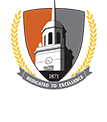Academic Restructuring
Lightcast Request Form (completed forms should be submitted to the Dean)
_________________________________________________________________________________________________________________________________
As presented at the Academic Affairs Kick-off Meeting on Monday, August 19, 2024, one of the Academic Affairs Priorities for 2024-2025 is to restructure departments and units to better reflect the current patterns of enrollment and the current programs in highest demand.
Review the PowerPoint that was presented
Your feedback is integral to this process. A survey was distributed via email on September 3 to provide insight on reducing the number of administrative units.
Frequently Asked Questions
Restructuring at this level will further facilitate cross-departmental initiatives and encourage innovative approaches to education and research. The new structure can lead to more efficient use of faculty, facilities, and financial resources, optimizing performance. As we consider the Chancellor’s Pillars: Student Success, Research & Scholarship; Diversity, Equity, and Inclusion, and Economic Development & Upper Mobility, we need to remember that academics dictate the operations. Let us rethink what student success looks like, how our research and scholarship have an impact on the region and state, how we can revise and create programs that that reflects the diverse nature of community, region, and state, and whether the credentials that we produce allows our alumni to secure economic security and workforce advancement. Examining how we deliver our curriculum and structure our academic and non-academic programs are ways to address our financial crisis.
Examples of other schools who have or are restructuring – Brockport (one year ahead of us), Fredonia, Arizona State.
- Academic Performance: Includes the quality of teaching and module content, student satisfaction with their educational experience, and overall student academic achievement.
- Research Output: Comprises the quantity and quality of research produced by the institution - the number of research papers published, research grants received, and collaborations with other institutions or industries.
- Faculty Quality and Satisfaction: Refers to the qualifications, experience, and satisfaction of faculty members which can impact the quality of education and research at the institution.
Faculty will continue to represent their disciplines or programs in senate and other governing bodies. Faculty service will spend less time on unit-level committee work and more time on teaching and research.
Academic programs and disciplines are valued. Academic programs are central to our mission. This move will enable faculty to collaborate across disciplines. Collaborative research and teaching across disciplines reduces risk of program closure due to low enrollment.
Academic Affairs will need to consider centralized staff model. Administrative assistants will still be collocated with faculty offices. Conversations with all stakeholders will occur to discuss the possibility of reassigning and professionalizing tasks.
Training and professionalization will be needed to ensure success. Stakeholders will consider course release time, 12-month contract, and semi-permanent nature of the position with the goal of eliminating duplication and redundant work.
The long-term efficiencies enabled by a restructure are substantial. We should see an immediate small up-front reduction in academic costs including a reduction in the number of sections and the number of times a low enrolled course is offered, an increase in course capacity, and a reduction in the number of administrative leadership positions, the number of staff who perform daily tasks, the number of academic stipends.
Conversations with Institutional Advancement, department chairs, and program coordinators will take place before change is made.
Open Feedback Sessions
Open sessions took place on the following dates in Bulger 422
3:00-4:00 on Monday, September 9
12:15-1:30 on Tuesday, September 10
9:00-10:00 on Friday, September 13

